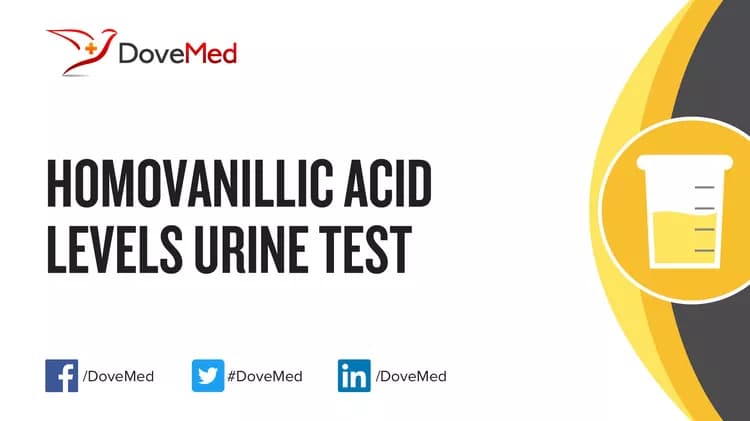What are other Names for this Test? (Equivalent Terms)
- HVA Levels Urine Test
What is Homovanillic Acid Levels Urine Test? (Background Information)
- Homovanillic acid (HVA) is the final breakdown product of the ‘feel-good’ brain chemical dopamine
- Dopamine is released by nerve cells in the brain and by adrenal gland cells. It is associated with the reward pathway of the brain. Dopamine levels increase after a meal, as well as other activities associated with a pleasure response, including drug use.
- Aside from its effects on the nervous system, dopamine affects the intestines, kidneys, and immune cells. Research is continuing to uncover the many processes with which dopamine is involved
- Dopamine is broken down by various enzymes, including MAO, or monoamine oxidase. MAO inhibitors are antidepressant drugs that interfere with the breakdown of dopamine, prolonging its feel-good effects
- Breakdown of dopamine proceeds through several known pathways, but the final result is the compound homovanillic acid. This final step occurs in the kidneys, and HVA is excreted through the urine
- Certain tumors release dopamine and contribute to excessive dopamine levels in the body. Also, some individuals may possess a rare genetic mutation that interferes with their ability to process dopamine. These scenarios both result in increased levels of HVA
- The Homovanillic Acid Urine Test helps determine the levels of HVA in urine. It is used to diagnose dopamine-secreting tumors and metabolic disorders that interfere with dopamine breakdown
What are the Clinical Indications for performing the Homovanillic Acid Levels Urine Test?
Following are the clinical indications for performing the Homovanillic Acid Urine Test:
- Monitoring the course of therapy for dopamine-secreting tumors
- Following up to a high value for the test
- Fatigue
- High blood pressure
- Rapid heart rate
- Swelling
- Bulging eyes
- Loss of appetite
How is the Specimen Collected for Homovanillic Acid Levels Urine Test?
Following is the specimen collection process for Homovanillic Acid Levels Urine Test:
Sample required: Urine
Process of obtaining a sample in adults: Urination into a sterile container over a 24-hour period.
Preparation required: It is recommended to drink 6 to 8 glasses of water or other fluids prior to the test.
What is the Significance of the Homovanillic Acid Levels Urine Test Result?
A high value for the Homovanillic Acid Levels Urine Test is interpreted from an HVA level higher than 15 mg/day. It may indicate:
- Neuroblastoma
- Pheochromocytoma
- Paraganglioma
- Riley-Day syndrome
The laboratory test results are NOT to be interpreted as results of a "stand-alone" test. The test results have to be interpreted after correlating with suitable clinical findings and additional supplemental tests/information. Your healthcare providers will explain the meaning of your tests results, based on the overall clinical scenario.
Additional and Relevant Useful Information:
- Certain factors interfere with the results of the Homovanillic Acid Levels Urine Test. These include exercise and anxiety
Certain medications that you may be currently taking may influence the outcome of the test. Hence, it is important to inform your healthcare provider of the complete list of medications (including any herbal supplements) you are currently taking. This will help the healthcare provider interpret your test results more accurately and avoid unnecessary chances of a misdiagnosis.
The following DoveMed website link is a useful resource for additional information:
https://www.dovemed.com/common-procedures/procedures-laboratory/vanillylmandelic-acid-test/
Please visit our Laboratory Procedures Center for more physician-approved health information:
http://www.dovemed.com/common-procedures/procedures-laboratory/
Related Articles
Test Your Knowledge
Asked by users
Related Centers
Related Specialties
Related Physicians
Related Procedures
Related Resources
Join DoveHubs
and connect with fellow professionals


0 Comments
Please log in to post a comment.